‘The Gift’ Explores the Life and Legacy of Medal of Honor Recipient Jason Dunham
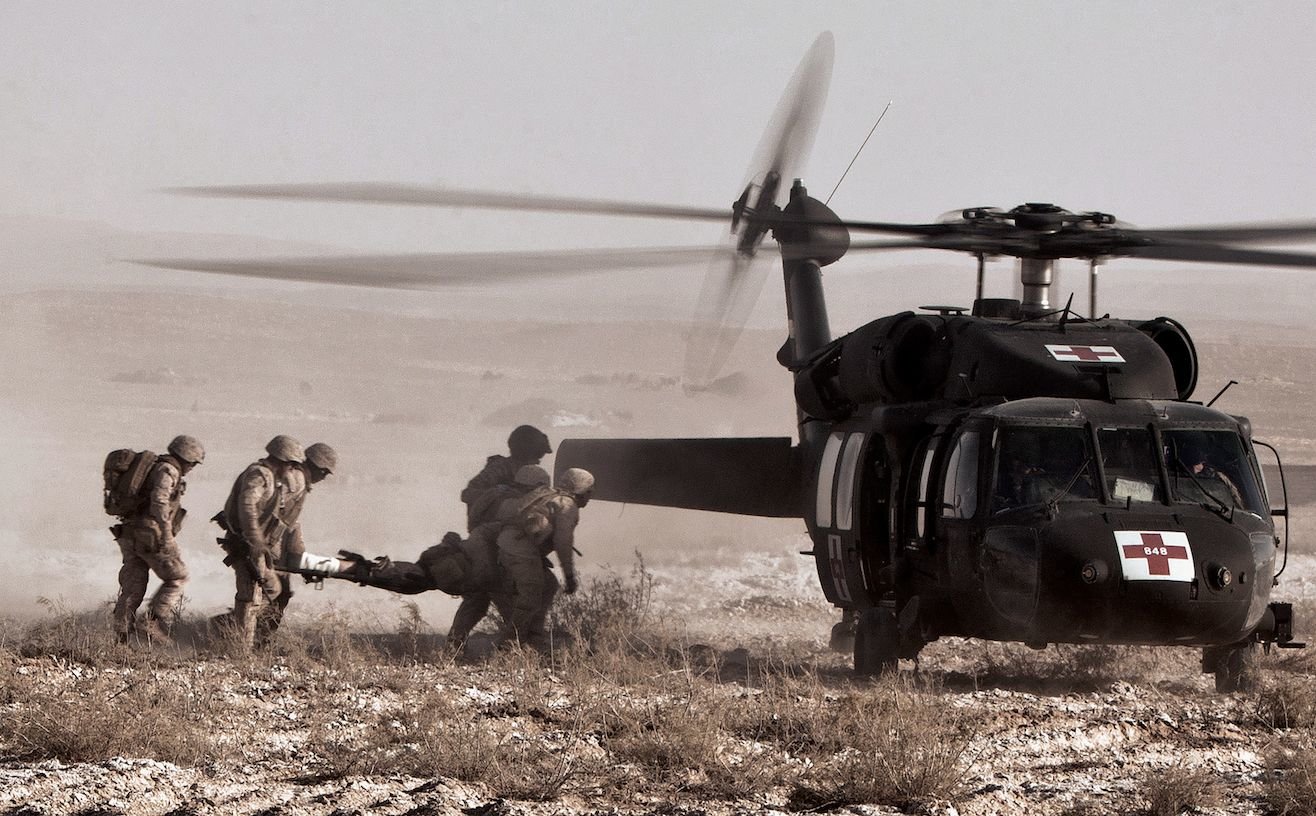
Jason Dunham was the first Marine to be awarded the Medal of Honor since the Vietnam War. Screenshot from "The Gift."
In 2003, David Kniess boarded a flight from California to Connecticut and found himself seated next to a young passenger with the immediately recognizable high-and-tight haircut of a military man. Kniess, himself a Navy veteran, soon learned that the man’s name was Jason and that he was on his way home from 29 Palms, where he was stationed with Kilo company of the 3rd Battalion, 7th Marine Regiment.
The two strangers talked the entire flight. Kniess spoke of his days as an enlisted sailor aboard a guided missile cruiser and his decision to stay in California after the military to pursue a career as a filmmaker. Jason talked about his upbringing in rural New York and about his experiences in the Corps. The war in Iraq was just getting underway, and as Jason explained, he would soon be deploying there as an infantry squad leader. The young Marine didn’t seem nervous. He was ready to put his training to use.
By the time they landed, Kniess felt like he’d known Jason his whole life.
“I told him to take care of himself while he was over there, and he just kind of smiled this million dollar smile, and said, ‘No worries, man. It's all good,’” Kniess told Coffee or Die. “And I just watched him walk away and thought to myself, Man, what a great fucking kid.”
Related: New Documentary Tells the Story of Marine Recon Legend James Capers Jr.
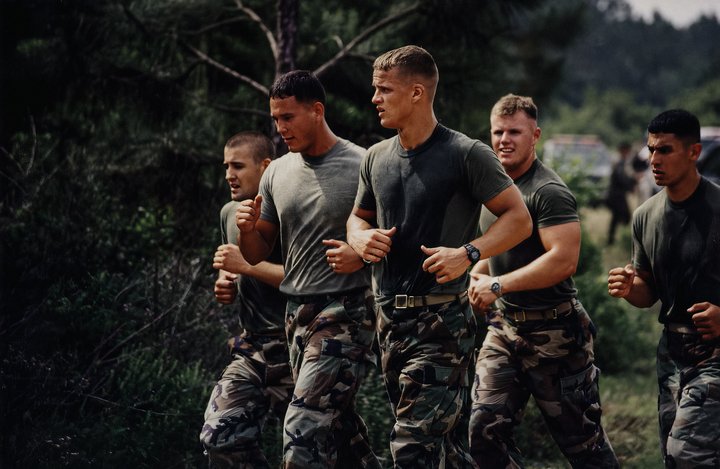
Jason Dunham takes his Marines for a run. Photo courtesy of David Kniess.
Kniess didn’t realize at the time, but his chance encounter with the Marine would ultimately change his life. In fact, it was the starting point of a journey that only now, two decades later, is finally reaching its outcome. Kniess eventually achieved his dream of becoming a successful filmmaker. He has worked on — written, directed, or produced — more than a dozen films and television shows and received plenty of accolades for his work. But if you ask him, he will tell you that the most important story he has ever told, and may ever tell, is the tale of that Marine with the million dollar smile.
Two months after that fateful encounter, Kniess came across a website that tracked US military casualties in Iraq. The names of all the American service members who were killed in the war so far were listed on the site chronologically by their date of death. As Kniess scrolled down the page, one name jumped out: Jason Dunham. A Marine. From Scio, New York. Kniess clicked on the entry and a photograph appeared. His heart sank. It was the same Jason he had met on the plane.
“I could feel the blood rushing through my body,” Kniess said. “I couldn't believe it. All I could think was, God, not that fucking kid. He was such a good guy.”
In time, Kniess would learn the circumstances of Dunham’s death. He’d learn that the 22-year-old Marine had been mortally wounded by a hand grenade but lived eight more days — just long enough to keep the promise he’d made to his mother that he’d return home from Iraq alive. He’d also learn that Dunham had jumped on the grenade that killed him.
Dunham succumbed to his wounds on April 22, 2004. Three years later, he was posthumously awarded the Medal of Honor. According to the medal citation, Dunham shouted a warning before covering the grenade with his body and shielding others from the blast. His selfless actions saved the lives of at least two of his fellow Marines.
As Dunham’s story came into clearer focus, Kniess made up his mind that he would devote himself to telling it. He wanted the world to see what he himself had understood at a glance: that this young Marine from western New York had been an extraordinary person. Ultimately, however, he would discover that the story was much bigger than Dunham himself, and that to truly honor Dunham’s memory, he would have to earn the trust of those whose lives he had impacted the most. It was no small feat, but nearly 20 years later, Kniess’ film, titled The Gift, is finally done.
Related: Danish Documentary ‘Armadillo’ Shows Unvarnished Reality of Afghan Combat
Duhnam’s unit, Kilo Company, was deployed to an area of Iraq sometimes referred to as the Sunni Triangle — an approximately 2,700-square-mile swath of desert that encompasses the hotbed cities of Ramadi, Fallujah, and Tikrit. Following the American invasion, the area became a stronghold for Sunni insurgents in their revolt against the US-led coalition and the new Shia-dominated government it had installed in Baghdad. Kilo conducted daily patrols to locate, capture, and kill militants. Suffice to say, it was a dangerous mission.
One day, during some downtime, Duhnam and his platoon mates got to talking about jumping on grenades — an act of heroic self-sacrifice carried out by 67 Marines since the Corps’ founding. Dunham surmised that if a person covered the grenade with their Kevlar helmet before jumping on it, they might be able to survive the blast. When someone remarked that nobody would have time to remove their helmet before the grenade’s four-second fuse ran out, Dunham offered to demonstrate. While his platoon commander timed him, Dunham flung his helmet off his head, flipped it over, and slammed it on the deck, covering an imaginary grenade in less than four seconds. It was clear to Dunham’s comrades that this wasn’t the first time he had rehearsed the scenario.
On April 14, 2004, Dunham led his squad of Marines on a security patrol through Husaybah, Iraq. After discovering a vehicle full of weapons, Dunham and the driver engaged in hand-to-hand combat. During the melee, Dunham shouted to the other Marines to “watch his hands,” at which point the insurgent dropped a live grenade. Just as he had rehearsed two weeks earlier, Dunham leapt to the ground, covering the grenade with his helmet and body just before it exploded.
Several of Dunham’s Marines were wounded by the blast but all of them survived. Dunham himself remained alive for more than a week before succumbing to his wounds. He died while surrounded by his family at Bethesda Naval Hospital in Maryland. Following his death, Dunham was nominated for the Medal of Honor, and on Jan. 11, 2007, he became the first Marine since the Vietnam War to receive it.
Related: Restrepo-Like Documentary ‘The Hornet’s Nest’ Is a Standout Film
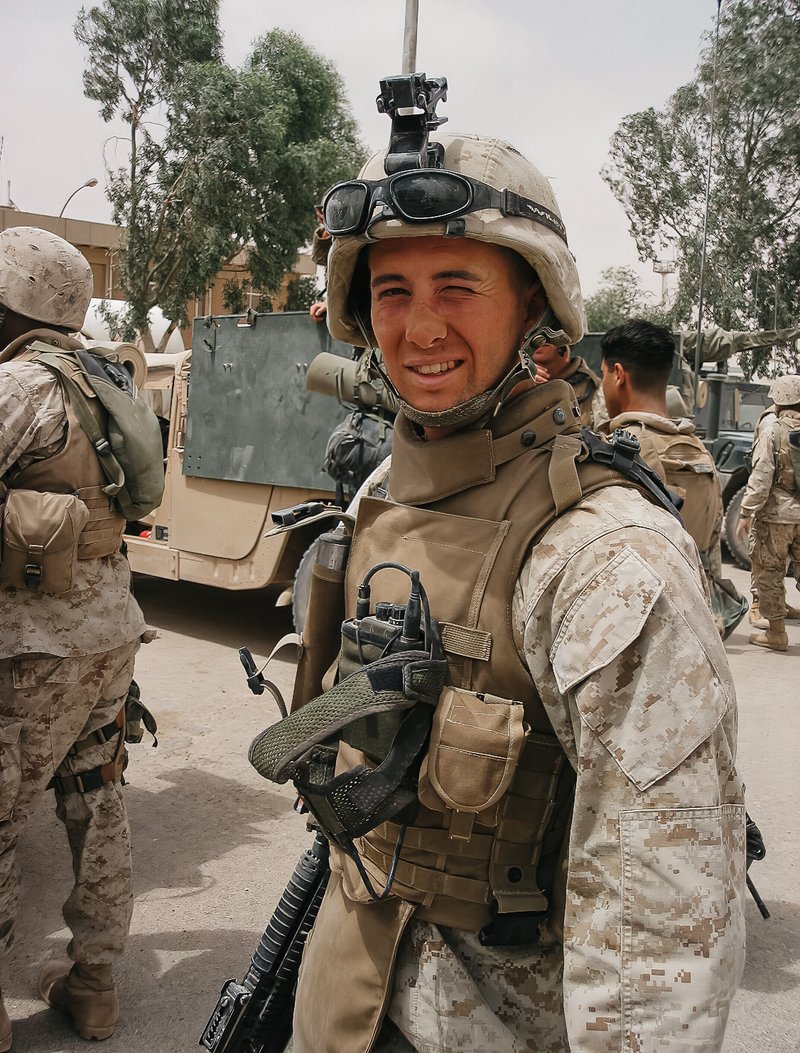
Sgt. Mark Dean was Dunham's closest friend and has struggled with survivor's guilt since Dunham's death. Photo courtesy of David Kniess.
“I find Dunham’s story incredibly heroic as well as tragic,” Vincent Vargas, former Army Ranger and one of the film’s producers, told Coffee or Die. “He was such a beautiful person. When I heard his story — and what he’d been doing in the weeks before his death — that’s when I jumped on board and said we’ve got to find a way to make this movie happen.”
The Gift examines, among other things, the profound and lasting impact of Dunham’s death. Through a series of interviews with his comrades, Kniess learned that in Iraq the young infantryman had proven to be one of the most adept junior leaders in Kilo Company. Capt. Trent Gibson, the company commander, recalls in the film how, on the night prior to his final mission, Dunham had stayed up late scrutinizing his operation order and that two of his subordinates brought him a plate of food. In Gibson’s eyes, the two Marines were symbolically confirming Dunham as their leader. He remembers wondering, God damn, what would I ever do if I lost a Marine like that?
Gibson is one of a chorus of Kilo Company Marines who appear in the documentary to share their memories of Dunham and reflect on how his actions impacted them. Lance Cpl. Jason Sanders — who was next to Dunham when the explosion occurred — shot the insurgent who had dropped the grenade. Sanders explains in the film that he has spent the past 18 years grappling with both having witnessed his mentor get mortally wounded and also killing an unarmed man.
“That day in Husaybah, we were all gifted something more than we could grasp at the time,” Sanders tells the camera “The gift is that I’m right here talking to you and I have a family. [...] It’s a damned gift that you didn’t have to unwrap. It’s up to you to make good or bad out of it, and it’s been both for me.”
Related: In New Documentary, Former Nazis Warn of Slippery Slope To Genocide
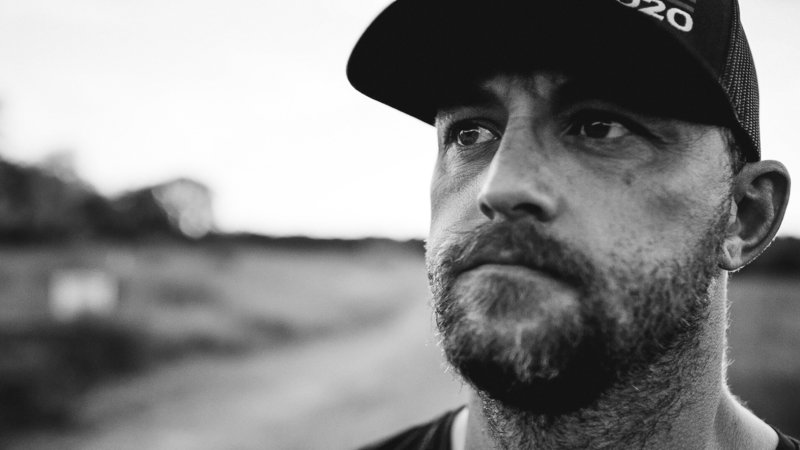
Dunham used his body to shield Jason Sanders from the grenade's blast. Photo courtesy of David Kniess.
Lance Cpl. James Castaneda, who nearby when the grenade detonated, has struggled to accept the circumstances of Dunham’s death. What haunts him most, he says, is the lack of closure.
“The hardest part is I didn’t even get to say goodbye,” Castaneda told the filmmakers. “I didn’t get to say I’m sorry. So all I have of him is the image of him on the ground.”
Sgt. Mark Dean, Dunham's closest friend in the platoon, has struggled with survivor’s guilt. After leaving the Corps, he was prescribed a cocktail of prescription drugs from the Department of Veterans Affairs that led him to develop addictions to meth and opioids. His trauma and substance abuse issues cost him his marriage, his family, and nearly his life before he finally got sober in 2020.
As the film unfolds, it eventually becomes clear that all of the Marines interviewed share Sanders’ view that Dunham’s final act in life was a gift he gave them. By throwing himself upon the grenade, he granted them a second chance at life. Clearly, for many of them, it’s a heavy burden to bear.
The Gift concludes with a platoon reunion that took place in 2021 at Dunham’s parents house in New York. By that point, Kniess had overcome his fear of being perceived as an intruder — of being an outsider meddling in a family affair, of not having the right words to convey his respect and sympathy. When he arrived, Dunham’s parents insisted he get his bags from the hotel and stay in their home. Only then did he realize that, like the Marines their son had served with, he had become a part of their extended family.
In the film, we see that the Marines who once patrolled Iraq’s streets alongside Dunham are no longer lean and clean shaven. They are aging warriors with beards and burgeoning waistlines. Eventually, the conversation turns from small talk to Dunham and the legacy of his sacrifice. At one point, Dunham’s father, Dan, gathers his son’s brothers-in-arms and tells them to relinquish any guilt that they’ve held onto for the last two decades. In no uncertain terms, he tells them that they do not owe Dunham’s family anything and that none of them should feel responsible for his death.
Related: Veteran’s Documentary ‘For the 25’ Pays Tribute to Sangin Marines
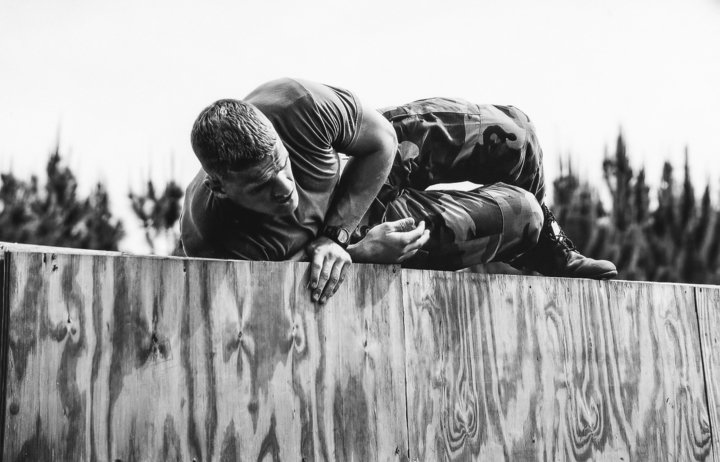
In 2007, a guided missile destroyer was named the USS Jason Dunham in his honor. A warrior station was also named in his honor at Marine Corps Recruit Depot Parris Island. Upon reaching the station during the training's culminating event, recruits read his Medal of Honor citation before practicing ground-fighting techniques like those used by Dunham prior to the grenade's detonation. Photo courtesy of David Kniess.
More than just a profile of an American hero, The Gift gives audiences a rare glimpse into the post-war lives of warfighters and an even rarer look at what happens to the family members of Medal of Honor recipients after the fanfare subsides. It’s a story Kneiss feels he was uniquely positioned to tell.
“I think that was the No. 1 thing that makes this story so good,” Kneiss said. “It’s the fact that I built this trust with these guys over 18 years, and I wasn't just some guy off the street doing a documentary.”
The Gift has not yet been released to general audiences, but Kneiss and his team are hopeful that it will be available for streaming on Amazon and Hulu later this year. In the meantime, the film is making its rounds on the festival circuit. So far, it has won the Best Documentary prize at the 2023 Utah Film Festival and the Santini Patriotic Spirit Award at the 2023 Beaufort (South Carolina) International Film Festival. Most recently, it won the Marine Corps Heritage Foundation’s Major Norman Hatch Award for best documentary. For all the positive attention his film is receiving, Kneiss is uncomfortable taking credit for its success.
“The only people I can really thank are Jason Dunham’s family and the Marines of Kilo Company,” he said, “because this wouldn’t have happened without them.”

Mac Caltrider is a senior staff writer for Coffee or Die Magazine. He served in the US Marine Corps and is a former police officer. Caltrider earned his bachelor’s degree in history and now reads anything he can get his hands on. He is also the creator of Pipes & Pages, a site intended to increase readership among enlisted troops. Caltrider spends most of his time reading, writing, and waging a one-man war against premature hair loss.
BRCC and Bad Moon Print Press team up for an exclusive, limited-edition T-shirt design!
BRCC partners with Team Room Design for an exclusive T-shirt release!
Thirty Seconds Out has partnered with BRCC for an exclusive shirt design invoking the God of Winter.
Lucas O'Hara of Grizzly Forge has teamed up with BRCC for a badass, exclusive Shirt Club T-shirt design featuring his most popular knife and tiomahawk.
Coffee or Die sits down with one of the graphic designers behind Black Rifle Coffee's signature look and vibe.
Biden will award the Medal of Honor to a Vietnam War Army helicopter pilot who risked his life to save a reconnaissance team from almost certain death.
Ever wonder how much Jack Mandaville would f*ck sh*t up if he went back in time? The American Revolution didn't even see him coming.
A nearly 200-year-old West Point time capsule that at first appeared to yield little more than dust contains hidden treasure, the US Military Academy said.












